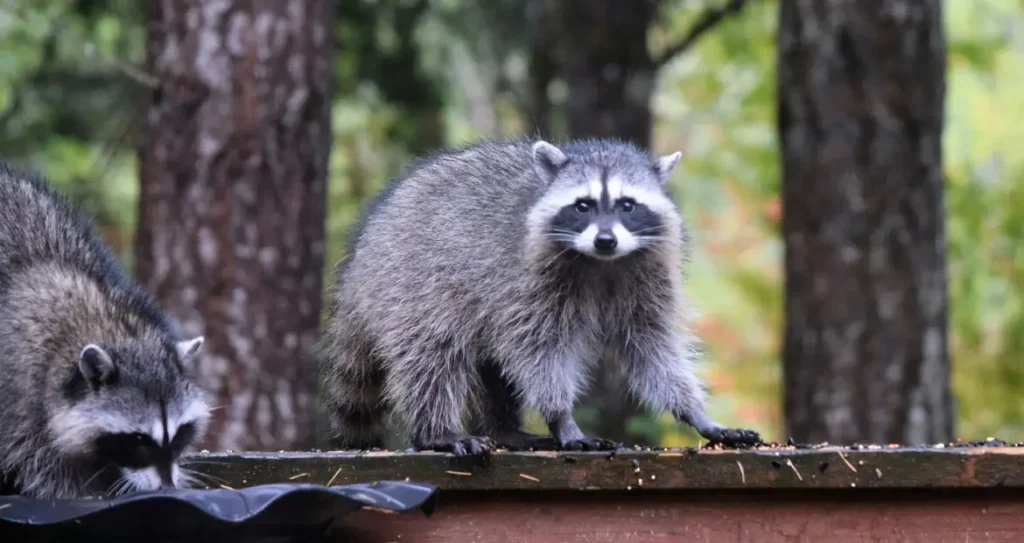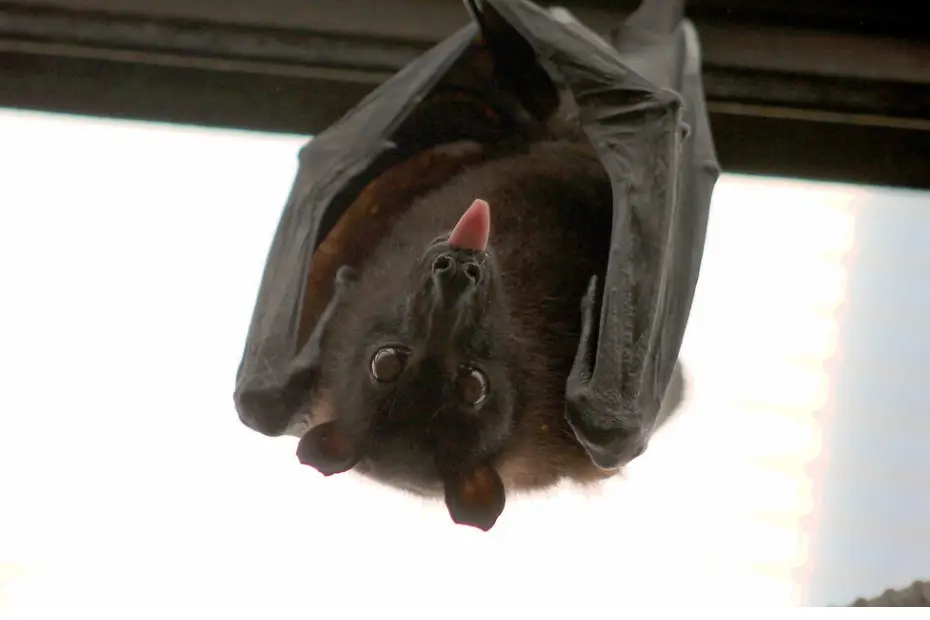Table of Contents
From a distance, raccoons may appear cute with their disguised faces and agile paws, but up close, they can become a problem if they set their sights on your home. These cunning animals are renowned for their tenacity and resourcefulness; they frequently cause mess, harm property, and even pose health problems. This thorough advice can assist you if you’re sick of putting up with unwelcome raccoon guests. We’ll delve into the world of raccoons, look at practical preventative measures, and give you the information you need to fend off these masked criminals.
Understanding Raccoons and Their Behavior

Prior to delving into preventive measures, let’s pause to comprehend raccoons and what motivates them to invade our residential areas.
Medium-sized mammals, raccoons are indigenous to North America. They are extremely versatile and do well in a range of environments, including as suburban neighborhoods, cities, and woods. The varied diet of these nocturnal omnivores includes fruits, nuts, insects, small animals, and even trash.
There are various reasons why raccoons are drawn to homes:
- Food Sources: Raccoons may become drawn to easily accessible food sources, such as fruit trees in your yard, pet food left outside, or unlocked trash cans.
- Shelter: Raccoons look for protected areas to raise their young or to get away from inclement weather. These animals can find refuge in crawl spaces, attics, chimneys, and even beneath decks.
- Water: Water is necessary for raccoon survival, and water features such as ponds, birdbaths, and leaky faucets might attract them to your property.
Common signs of raccoon presence around your house include:
- Knocked-over trash cans and scattered garbage
- Tracks and droppings in your yard or garden
- Damage to your roof, siding, or vents
- Noises in your attic or walls, especially at night
- Pet food disappearing mysteriously
It’s critical to act quickly if you see signs of raccoon activity near your home. Numerous issues can be brought on by raccoons, such as:
- Property Damage: In their pursuit of food and shelter, raccoons have been known to rip up insulation, chew through cables, and cause damage to your siding or roof.
- Messes and Contamination: Urine and droppings from raccoons can contaminate your garden, attic, or other areas of your property, endangering the health of both people and animals.
- Disease Transmission: Raccoons can infect humans and pets with diseases like roundworm, leptospirosis, and rabies through bites, scratches, or contact with contaminated excrement.
Raccoon behavior and possible hazards can be understood, so you can take preventative measures to keep them from becoming an issue near your home.
Effective Raccoon Prevention Strategies

Now that we are more knowledgeable about raccoon behavior and motivations, let’s look at some practical preventative measures that may be taken to keep them out of your home. By putting these precautions in place, you may make your property less appealing to raccoons and deter them from making it their home.
1. Secure Your Trash and Compost:
Your trash and compost bins can be a veritable feast for raccoons. To prevent them from raiding your garbage:
- Use raccoon-proof trash cans: Purchase robust garbage cans with tightly fitted lids that are difficult for raccoons to open. Seek for cans made especially to withstand raccoon attacks.
- Store trash cans in a secure location: Until the day of collection, try to store your trash cans in a garage or shed. If you have to store them outside, think about fastening them to a post or fence to keep raccoons from toppling them.
- Avoid leaving food scraps or pet food outdoors: Food scraps, pet food, and filthy dishes should never be left outside since they can draw raccoons and other wildlife.
- Compost in a sealed container or enclosed bin: If you compost, keep the organic matter away from raccoons by using an enclosed bin or sealed container.
2. Eliminate Food Sources:
It’s critical to eliminate any other potential food sources in and around your property, in addition to keeping your waste and compost contained:
- Pick up fallen fruits and berries from your yard: Being opportunistic feeders, raccoons will gladly eat any berries or fallen fruits they come upon. Keep your yard tidy on a regular basis to get rid of these temptations.
- Feed pets indoors or remove leftover food promptly: After your pets have finished eating, bring their food bowls inside if you feed them outside. Raccoons are welcome to stay overnight when pet food is left outside.
- Keep bird feeders away from your house or use raccoon-proof feeders: Raccoons may be drawn to bird feeders, particularly if they are situated near your home or trees. Use feeders that are impenetrable to raccoons or move them to a more remote area.
- Clean up any spilled food or grease immediately: Even tiny amounts of spilled food or grease might draw raccoons. Spills should be cleaned up right away to keep them from coming onto your property.
3. Seal Entry Points:
Because they are expert climbers, raccoons can fit through remarkably tight spaces. In order to keep them out of your home:
- Inspect your house for any cracks, holes, or gaps: Look closely for any possible access points in your siding, roof, foundation, and vents. Be very cautious in the vicinity of eaves, chimneys, and pipes.
- Seal openings with caulk, wire mesh, or other suitable materials: Use caulk, expanding foam, or other suitable materials to plug any holes or gaps. Cover bigger vents or apertures with wire mesh.
- Cover chimneys and vents with caps or screens: If you want to keep raccoons out of your house, use vent screens and chimney caps.
- Trim tree branches away from your roof: Overhanging tree branches can provide raccoons with access to your roof. To discourage branches from climbing, trim them back at least six feet from your house.
You may greatly lessen the likelihood of raccoons settling down in or around your home by taking careful care of your trash, removing food sources, and caulking entry points.
4. Protect Your Garden and Crops
Raccoons can cause serious damage to your garden by eating fruits, vegetables, and even planting seeds that have just been planted. Protect your garden by taking these steps:
- Use fencing or netting to protect your garden: To physically keep raccoons out of your garden, enclose it with a strong fence or netting. To keep raccoons from burrowing behind the fence, make sure it is at least 3 feet tall and buried at least 6 inches deep.
- Harvest fruits and vegetables promptly: Ripe fruits and vegetables should not be left to rot on the vine or in the ground. When they are ready, harvest them to keep raccoons from getting hungry.
- Consider using motion-activated sprinklers or lights: Sprinklers and lights that detect movement can frighten and deter raccoons from coming into your yard. The majority of home improvement stores carry these gadgets.
5. Use Repellents:
While not a foolproof solution, repellents can help deter raccoons from your property:
- Apply commercial raccoon repellents around your property: There are numerous commercial raccoon repellents on the market. When applying and reapplying, carefully follow the manufacturer’s recommendations.
- Try natural repellents like peppermint oil, cayenne pepper, or garlic: Raccoons are supposedly turned off by a few natural ingredients, including garlic, cayenne pepper, and peppermint oil. By combining these materials with water, you may make your own repellent spray that you can use all around your property.
- Reapply repellents regularly, especially after rain: Over time, repellents lose their potency, particularly after heavy rain or irrigation. To keep their deterring impact, reapply them often.
6. Employ Humane Removal Methods:
It’s imperative to remove raccoons from your home in a compassionate and safe manner if they have already established themselves in your attic, chimney, or other areas.
- If raccoons have already entered your house, contact a professional wildlife removal service: It can be risky and in some places even illegal to try to remove raccoons on your own. Expert wildlife removal services can safely and successfully remove raccoons from your home because they have the necessary equipment and experience.
- Avoid trapping or relocating raccoons yourself, as it can be dangerous and illegal in some areas: Raccoons may experience stress when trapped and relocated, and the issue may only shift elsewhere. It’s best to let the experts handle this chore.
Recall that the best defense against raccoons entering your home is prevention. You can make your home and property less appealing to these creatures and keep them out by putting these practical strategies into practice.
Additional Tips and Considerations
Here are some other pointers and things to think about in addition to the main tactics mentioned above to assist you keep raccoons away from your home:
- Keep pet doors closed at night: Since they are nocturnal creatures, raccoons are more likely to enter your home at night. Pet doors can be closed at night to keep animals from using this handy entryway.
- Clean up any pet waste from your yard: Wildlife, including raccoons, can be drawn to pet waste. As soon as possible, clean up after your pets to prevent leaving an inviting spread for intruders.
- Remove any standing water sources: Get rid of any sources of standing water around your house, like birdbaths, blocked gutters, and leaky faucets. Because they require water to survive, raccoons will gravitate toward locations with easy access to it.
- Secure outdoor structures like sheds and decks:Decks and sheds are examples of outdoor structures where raccoons can breed and find refuge. Ensure that these buildings are safe and devoid of any gaps that raccoons can use as an opening.
- Consider installing motion-activated lights or alarms: Raccoons and other wildlife can be effectively deterred with motion-activated lights or sirens. They may become frightened by the abrupt light or commotion and become less inclined to approach your home.
You may fortify your defenses against raccoons by keeping in mind these extra suggestions and taking proactive measures to make your property less appealing to them.
Frequently Asked Questions About Keeping Raccoons Away
Let’s address some common questions about keeping raccoons away from your house:
- How do I know if I have raccoons in my house?
- Keep an eye out for evidence of raccoon activity in your attic or walls, such as droppings, tracks, broken insulation, or noises.
- What are the best raccoon repellents?
- Predator urine and other natural components found in commercial repellents have been shown to be effective. Moreover, you might experiment with natural repellents like as cayenne pepper, garlic, or peppermint oil.
- Is it legal to trap or relocate raccoons?
- Local laws govern the removal and capturing of raccoons. It is advisable to consult your local animal control or wildlife agency before taking any action.
- How can I prevent raccoons from damaging my garden?
- Protect your garden with netting or fence, pick fruits and vegetables as soon as possible, and think about installing motion-activated lights or sprinklers.
- What should I do if I encounter a raccoon?
- Avoid going near or around a raccoon. To scare it off, make loud noises or use water spray. Call the animal control agency in your area if the raccoon seems ill or hostile.
Conclusion
It takes a multifaceted strategy that includes prevention, discouragement, and, if necessary, humane removal to keep raccoons away from your home. You can defend your house and belongings from these cunning animals by being aware of their habits, putting good plans into action, and being watchful.
Recall that consistency is essential. To establish an environment that raccoons will avoid, regularly check your property for possible access ways, protect food sources, and use repellents or other deterrents. Please do not hesitate to contact a wildlife removal agency for professional assistance if you are dealing with raccoon issues on a regular basis.
You can take back your space and live in a raccoon-free house by using the advice and techniques in this article.



